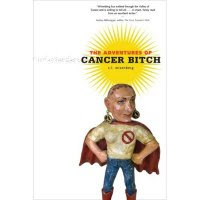So proud of myself--I had a phone conversation in French today, with someone at l'Alliance Francais, about taking the de Gaulle course instead of the literature class. I'm more interested in de Gaulle, though that's C-level, and I'm B-level, as is the lit class.
I listen fairly often to La marche de l'histoire podcasts on my phone. I understand between 40 and 70 percent, depending on the subject and how fast the guests speak. I was thinking last month or so that La march is just too hard for me, and I was listening to a show about Sainte Catherine de Sienne, and she didn't eat, and I was thinking to myself, Sounds like Simone Weil, and two seconds later, the host said, Like Simone Weil.
So.
I guess I can follow, at least some.
The Untimely Death of Stonewall Jackson
The Woman Who Could Not
Take It Any More felt very very very very sorry for herself. The Woman Who
Could Not Take It knows she is her own enemy, but not her own worst. That
distinction set aside for old bosses. It wasn't that she didn't blame herself
too. She imagines conversations with said bosses, none of which would end well,
with power on her side. But that is not what this is about. This is about the
$12,000 retail monthly medicine. And the dead friend who floats into her mind
and stays and then leaves. There were no regrets when she died. But now.
 The Woman Who Could Not
Take It Any More did not make sure that her hematologist approved the costly
drug for six more months. The Woman Who Could Not Take It Any More also did not
order her monthly Jakafi a week or so in advance. Because she did
not do these things she spends four hours on phones and in the Walgreens at
Fancy Hospital. The Woman has a few admirable traits. She can make the pharmacy
rep laugh over the phone. We were not expected to have such interesting lives,
her sister's junior high school friend writes to her on Facebook, probably 45
years after they have seen one another. There is sorrow throughout the land.
The poor groundhog, dead in New Jersey Feb. 1. Why was he named Stonewall Jackson? The Woman
Who Could Not Take It Any More saves her cousin from committing libel on
Facebook. The Woman Who Cannot Take It Any More hangs up accidentally on the
pharmacy-insurance gatekeeper. She wants to play the cancer card though she
suspects that most people who call the Specialty Pharmacy are in the same boat,
that boat being smack in the middle of Shit Creek, the long crab claws reaching
in from the water, over the gunwales, even. She hates the quaver in her voice.
Knows that she is privileged. Cannot control the quaver in her voice, in spite.
It is the 21st century. She is alive in the 21st century.
The Woman Who Could Not
Take It Any More did not make sure that her hematologist approved the costly
drug for six more months. The Woman Who Could Not Take It Any More also did not
order her monthly Jakafi a week or so in advance. Because she did
not do these things she spends four hours on phones and in the Walgreens at
Fancy Hospital. The Woman has a few admirable traits. She can make the pharmacy
rep laugh over the phone. We were not expected to have such interesting lives,
her sister's junior high school friend writes to her on Facebook, probably 45
years after they have seen one another. There is sorrow throughout the land.
The poor groundhog, dead in New Jersey Feb. 1. Why was he named Stonewall Jackson? The Woman
Who Could Not Take It Any More saves her cousin from committing libel on
Facebook. The Woman Who Cannot Take It Any More hangs up accidentally on the
pharmacy-insurance gatekeeper. She wants to play the cancer card though she
suspects that most people who call the Specialty Pharmacy are in the same boat,
that boat being smack in the middle of Shit Creek, the long crab claws reaching
in from the water, over the gunwales, even. She hates the quaver in her voice.
Knows that she is privileged. Cannot control the quaver in her voice, in spite.
It is the 21st century. She is alive in the 21st century.
She is alive in it.
She
is a slave to her emotions in it. Despite: Buspar (generic), Effexor (generic) and
Remeron (generic). She is one of those people who digs deep into her backpack
in public. Sometimes she calls it a knapsack, knowing that she is speaking from the wrong place and time. Rucksack. She has rescue medicine for her skin, her lungs, her brain--or wherever
the emotions are seated. Some said it was the uterus, of which she
is still a proud owner.
How can she feel so young
so alone when she has grown old?
The people who are worse
off are already dead.
Subscribe to:
Posts (Atom)










